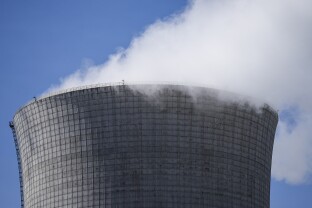There’s an obvious solution to the compounding energy problems in the United States, but even overwhelming bipartisan excitement can’t overcome one critical obstacle: States say it’s just too expensive.
Nuclear power is a source of nearly unlimited, carbon-free, dependable energy that could significantly alleviate the stress on the United States’ electrical grid and any subsequent spikes in electricity prices. This year, Congress passed nuclear reform with near unanimity, with only two senators and 13 House members in opposition.
Yet state public utility commissioners are warning that without even more significant federal investment, new nuclear plants are simply out of reach — or run the risk of seriously increasing consumers’ costs.
